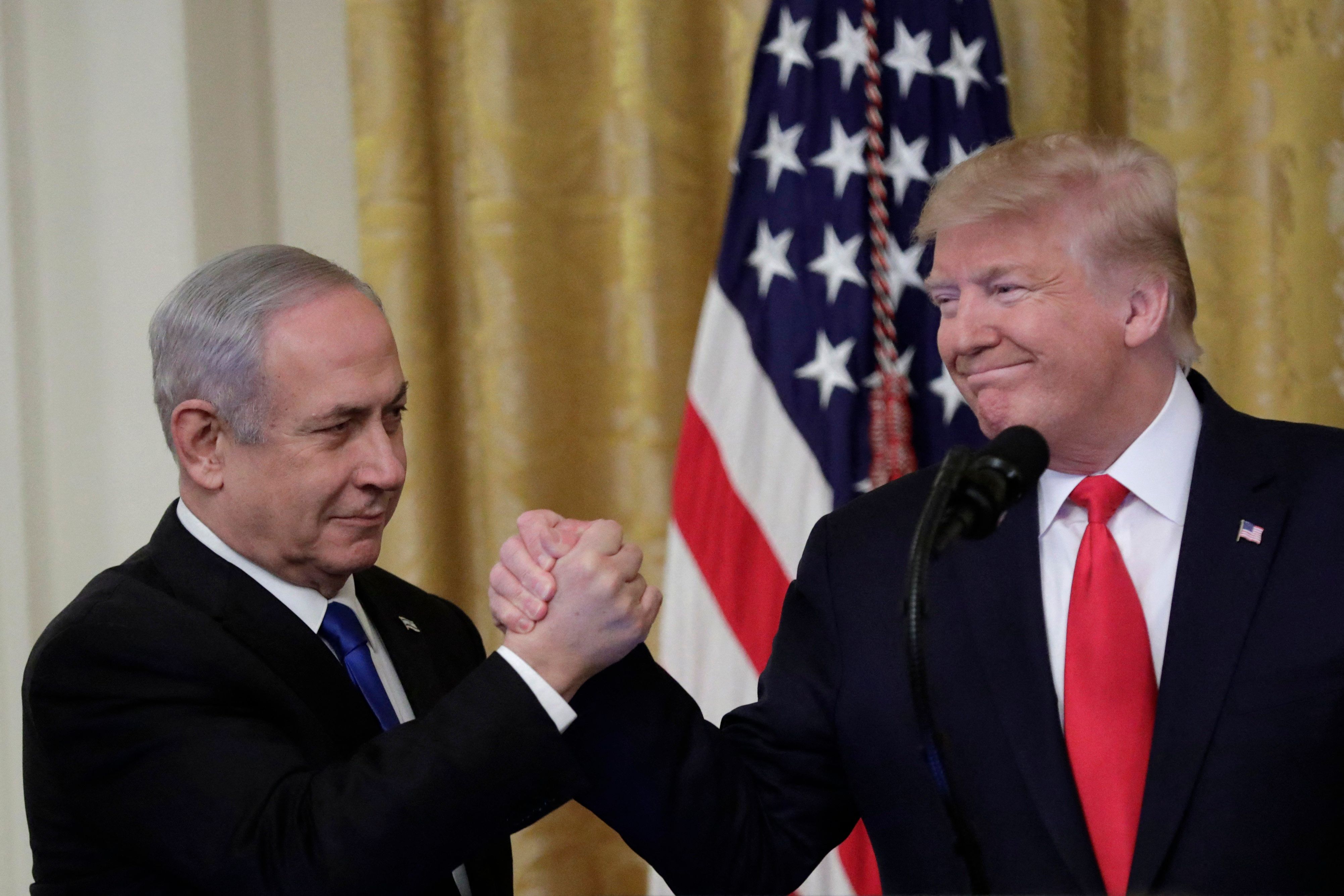January 28, 2020
Let's be clear— the Middle East peace plan that the US unveiled today is by no means fair. In fact, it is markedly more pro-Israel than any that have come before it.
But the Trump administration was never aiming for a "fair" deal. Instead, it was pursuing a deal that can feasibly be implemented. In other words, it's a deal shaped by a keen understanding of the new power balances within the region and globally.
It used to be that most people assumed time was on the side of the Palestinians. Their demographic growth would eventually force Israel to capitulate to their demands. But that hasn't happened. Israel has proved capable of keeping its own democracy separate from Palestinian demands for their own homeland. In the two decades following the Clinton peace proposal that the Palestinians rejected, Israel has continued its growth as one of the region's preeminent economic, military and technology powers.
The sovereignty of the Palestinian people, meanwhile, kept being worn away, a function of both expanded Israeli settlements and, more recently, US actions like moving the embassy to Jerusalem.
Even more problematic for the Palestinians has been the Arab world's waning interest in their cause. In 2020, Arab states like Saudi Arabia and the UAE have greater incentives to draw close to Israel, not only on the shared threat from Iran, but also on cybersecurity, intelligence sharing, and data/surveillance capabilities. And while the US has never been a particularly adept interlocutor between Israel and the Palestinians, it has – particularly under Trump – been surprisingly effective as a broker between Israel and the major Arab powers.
In part that's because the US doesn't need the Middle East the way it used to. Thanks to the US energy production boom of the past decade, Washington is free to be more selective in the goals it pursues there, and less concerned about keeping all sides happy. Hence the deal we saw today.
So far, Palestinian leaders have refused to even engage with the Trump administration's proposal, and it is hard to blame them. The deal doesn't give Palestinians control over Haram al-Sharif (i.e. the Temple Mount). It doesn't allow them to make core east Jerusalem the capital of a Palestinian state – it instead relegates a Palestinian capital to the outskirts of the city.
It gives any Palestinian state control over just 70 percent of the West Bank after formalizing the legal rights of Israeli settlers already there. And perhaps most problematic of all, it does not allow a Palestinian state to offer a "right of return" for Palestinians living outside the borders of any new Palestinian state.
But it does give the Palestinians one critical thing, whether they want to accept it or not—and that's not only the promised $50bn in infrastructure investment that the Palestinian people desperately need. The Trump proposal, like it or not, gives them the best deal they're likely ever going to get, given the realities of power in the Middle East today.
Again, this is not a peace deal designed to make both sides equally happy or unhappy. It's one designed to force the weaker party to acknowledge their increasingly weak hand, and to strike a deal before it gets weaker. It's a novel approach to the conflict, but it may make all the difference in the world.
More For You
Most Popular
Think you know what's going on around the world? Here's your chance to prove it.
Senator Flavio Bolsonaro, son of Brazil's former President Jair Bolsonaro, speaks during an interview with Reuters in Brasilia, Brazil, on December 19, 2025.
REUTERS/Adriano Machado
Three years ago today, supporters of former Brazilian President Jair Bolsonaro stormed Congress and other buildings in Brasília. With Bolsonaro in jail, though, and the election coming in October, his successor as leader of Brazil’s right is unclear.
The number of Japanese births continues to plunge, and is set to fall short of the government’s most pessimistic targets this year. That will hit the population, and exacerbate the economic challenges that Prime Minister Sanae Takaichi faces.
© 2025 GZERO Media. All Rights Reserved | A Eurasia Group media company.
